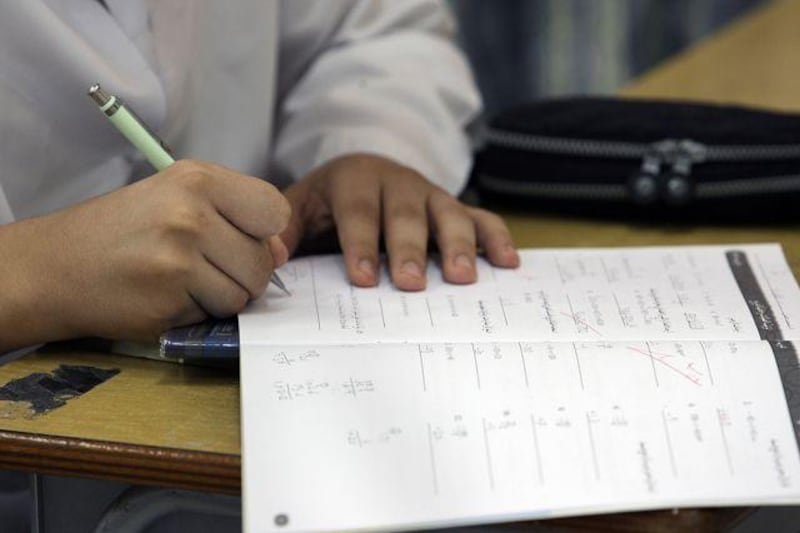ABU DHABI // The Federal National Council (FNC) yesterday approved a Government budget proposal for 2009 that came in 21 per cent higher than the budget for 2008. The Government said it was important for the FNC to sign off the Federal Budget, to send a message to the markets that the impact of the financial crisis on the UAE was minimal. The 2009 budget has been set at Dh42.2 billion (US$11.5bn), a marked increase for the second year in a row. The actual budget for 2008, which ended with a surplus, was Dh34.9 billion, up 24 per cent from 2007.
"We know about the global economic crisis today, but we hope to overcome challenges and keep an eye on the crisis in several ways," said Obeid Humaid al Tayer, Minister of State for Financial Affairs, during the morning FNC session. "For this reason we hope you'll approve the budget so that we can send a message to the markets that we will continue our spending and not freeze any projects." Under the budget, Abu Dhabi Police has been allocated Dh644 million; the Emirates Identity Authority Dh236m and the Ministry of Social Affairs Dh2.5bn. Higher education was allotted Dh2.6bn, which falls under the entire education umbrella of about Dh10bn. More than half of the education budget covers salaries. Dr Vincent Ferrandino, policy and planning director at the Ministry of Education, said: "The budget we have in place is the budget around which we've made our plans for the new year.
"The projects and initiatives are based upon the budget provided." Initiatives include new professional development programmes for teachers, curriculum standards for Government schools and student assessment methods. He added: "At the moment we feel the allocation is adequate but there's a realisation that as we move forward and make progress there needs to be an increase in the allocation." Dr Clifton Chadwick, a senior lecturer in international education management and policy development at the British University in Dubai, said a lack of funds was not the critical issue in state schools, which are acknowledged to be underperforming.
"They probably put enough money into education," he said. "The critical issue is how they use it and changing embedded ways of doing things." The Ministry of Health, which does not oversee health services in Dubai and Abu Dhabi, was granted Dh2.6bn. One healthcare professional, Mohamed Rashid, deputy director of Ibrahim Obaidullah Saig Ghubash Hospital in Ras al Khaimah, said more manpower was needed.
"You cannot have the services without the manpower," he said. "They allocate where the need is: in hospitals, manpower, infrastructure. The distribution of the budget is according to need." The Government, meanwhile, suggested several steps to minimise the impact of the financial crisis on the UAE, including increasing revenue from services and asking emirates to contribute more to the federal fund.
"Well, the Government is looking to increase revenues [from service] so as to balance between income and spending," said Mr al Tayer. "The budget has been discussed since the beginning of April, so we've taken into account the economic crisis? and the problems that nationals face like housing, health care." The Government did not provide detailed budget statements for 2008, or a breakdown of what each ministry was allocated. But it did give information on how much revenue was generated by services offered by each department.
According to the report, the Ministry of Health generated Dh422 million, and is forecast to generate almost twice that much in 2009, an estimated Dh768 million. It was not clear where this increase would come from, although one suggestion was that the cost of providing some services that have been paid for by the federal Government could be downloaded on to local emirates. So far, only two emirates contribute to the federal budget: Abu Dhabi, with the lion's share at Dh17 billion, and Dubai, with Dh1 billion.
"We hope to see contributions from everyone," said Ali al Jasim, the FNC's second vice president. "There are services and projects that should be the responsibility of the local government, not the federal government, which always picks up the tab. "So we're hoping for shared responsibility." Some FNC members expressed concern over what they said was a lack of accountability for ministries that did not deliver on promised projects, yet still managed to get the same or larger budgets.
"If a ministry doesn't implement its programmes, then it comes to the Finance Ministry and requests the same amount for the following year," Mohammed al Zoabi, of Sharjah. "How come the Finance Ministry doesn't say, 'We won't give you what you ask because you failed to implement your programmes'?". One of the main complaints is the ongoing lack of electricity and water services in many parts of the country.
"The promised housing project has been delivered and completed, yet it has had no electricity for two years," said FNC member Fatima al Murri, of Dubai. Another FNC member said: "This year's budget talks about electricity to certain areas, including the northern emirates and RAK. Yet none of the projects came to fruition, which was also the case with the Sheikh Zayed Housing project. I wish the ministers would attend our meetings to answer these concerns."
relass@thenational.ae * Additional reporting Alison McMeans and Daniel Bardsley






